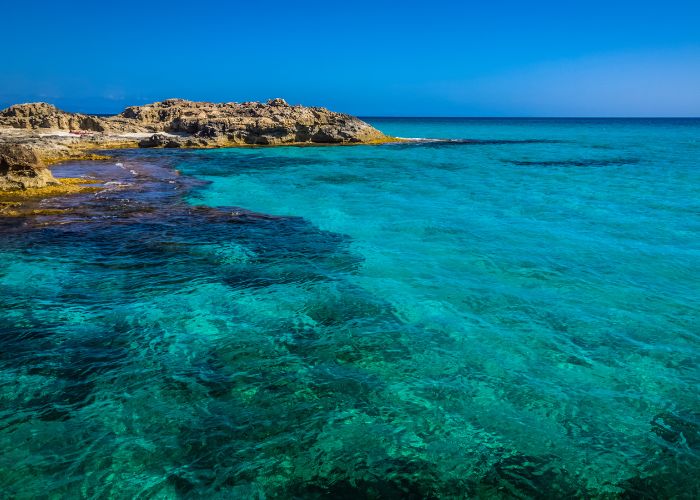There are serious concerns about the Mediterranean. Scientists speak of a ‘ticking time bomb‘. For the first time, the Mediterranean has its own voice at the climate summit. The COP27 offers a stage to the geostrategic problems that are very pressing.
The fight against climate change revolves around one number; ensure that the temperature on Earth does not rise faster than 1.5 degrees, as agreed in the Paris Agreement. The average temperature on Earth is crucial to curb the devastating effects of climate change. However, climate change is affecting temperatures in the Mediterranean, which are rising 20% faster than the global average.
Mediterranean temperature is getting too hot too quickly
Many tourists who vacationed in the Mediterranean Sea last summer noticed that the water of the sea is getting warmer. This claim was correct because in some places the thermometer indicated that the seawater had risen to no less than 31 degrees.
A recent WWF report states that the Mediterranean is “tropicalising”. “A major disaster,” according to the environmental protection organisation. The Union for the Mediterranean has issued warnings about this before, but the urgency seemed insufficient. That is why the Union has worked hard to get this warning through during COP27.
Related article: Spain plays an important role at COP27
Mediterranean Sea gets its own voice at Egypt’s climate summit
And that has had an effect, because for the first time a pavilion has been set up at a climate summit that is dedicated to the Mediterranean Sea. In this space, the area is represented by scientists, politicians and on a social and business level. All with the aim of tackling the climate crisis together in a coordinated way.
The aim of a Mediterranean pavilion at COP27 is to provide a meeting point where people can share their knowledge, raise awareness and promote solutions to the climate problems in this area.
Water in the Mediterranean is rapidly acidifying
With an area of 2.5 million square metres and a length of 3,860 kilometres, the Mediterranean Sea is the second largest inland sea in the world. But at the same time one of the most polluted, according to the WWF. Scientists confirm this as rising temperatures are causing more acidification of the seawater. The declining pH value has major consequences for marine life and threatens the marine ecosystem. According to the WWF organisation, the sea is ‘ground zero’ for climate change in Europe.
Rising sea levels have consequences far beyond the Mediterranean Sea
In addition, in the past 130 years, the water level of the Mediterranean Sea has risen by 17 cm. Due to climate change, this will increase by another 50 to 75 cm in the coming decades. The problems of the Mediterranean are not limited to this area. The salt water from the sea has penetrated the Nile since the 1960s. Water acidification has a significant impact on the crops, soils and food supplies of millions of people.
Rising water is one of the long-term effects of climate change, but other effects are already being felt in the Mediterranean. Hail, torrential rain and less fishing are things that people already have to deal with today.


